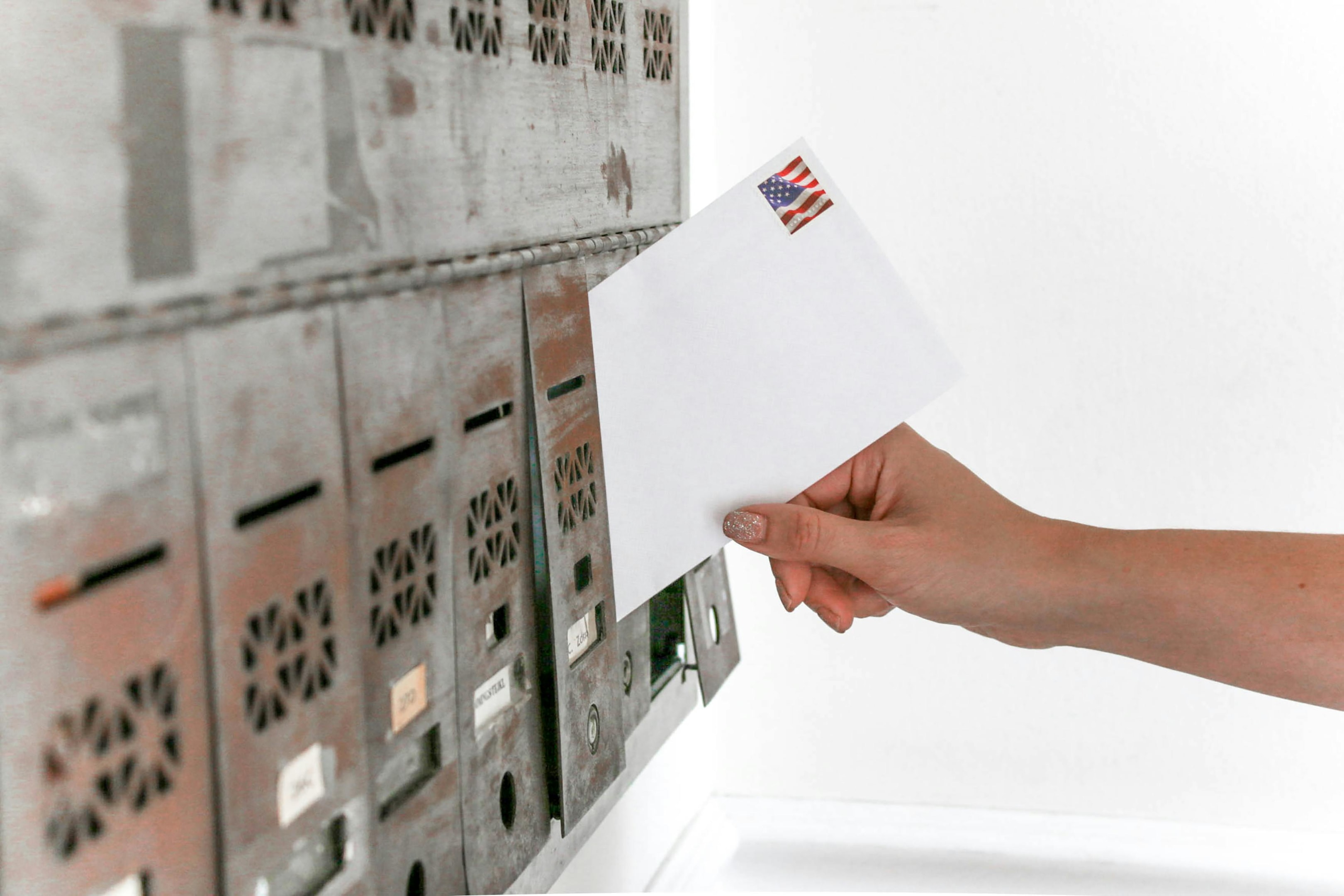Foreclosure Leads: Your Guide to Finding Profitable Opportunities
Introduction To Foreclosure Leads
So, you've probably heard the buzz about foreclosure leads and how they're a goldmine for real estate investors. But what are they exactly? And more importantly, how can you get in on the action? Foreclosure leads refer to properties that are in some stage of the foreclosure process—whether that's pre-foreclosure, auction, or bank-owned. For real estate investors, these leads can be deeply discounted opportunities just waiting to be scooped up.

Understanding the Foreclosure Process
Before you start chasing leads, you need to know how foreclosure works.
Pre-Foreclosure Stage
This is the window after a homeowner has missed a few mortgage payments, but before the property hits the auction block. It's a sweet spot for investors because owners are often motivated to sell before losing everything, and there is less competition in this stage.
Auction Stage
Once the bank files a foreclosure, the property can be sold at a public auction. This is riskier, since you often can't inspect the home before bidding.
Post-Foreclosure (REO Properties)
If the house doesn't sell at auction, the lender takes ownership and lists it as a Real Estate Owned (REO) property—often listed on the MLS or bank websites.
Types of Foreclosure Leads
There's more than one flavor of foreclosure lead, and each has its own strategy. Keep reading to learn more about each type.
Pre-Foreclosure Leads
These are homeowners who are behind on payments. You can negotiate directly with them before the property hits auction. Preforeclosure leads are sourced and filtered based on specific legal notices such as Lis Pendens and Notice of Default, with frequent data updates and customization options to ensure accurate and relevant information.
Auction Leads
Auction leads are discovered through county websites or platforms like Auction.com. These leads are ideal for investors who thrive in the fast-paced environment of auctions. The auction stage is marked by heightened excitement and competition as properties are sold to the highest bidder. However, this approach comes with its own set of challenges, such as limited access to inspect the property beforehand, making it a riskier venture. Investors must be prepared to make quick decisions and have a thorough understanding of the property's potential value and condition. Despite the risks, auctions can offer significant opportunities for acquiring properties at a competitive price, provided the investor is well-prepared and informed.
Bank-Owned (REO) Leads
Bank-Owned or Real Estate Owned (REO) properties are those that have reverted to the bank's ownership after failing to sell at auction. These properties are often listed on the MLS or bank websites, making them more accessible to investors. While REO properties are generally cleaner to purchase due to clear titles and the absence of liens, they tend to attract more competition from other investors. The negotiation process may also involve dealing with the bank's terms and conditions, which can be more rigid compared to direct negotiations with homeowners. Despite these challenges, REO properties can still offer lucrative opportunities, especially for investors who are adept at navigating the complexities of bank negotiations and are willing to compete in a more crowded market.

Where to Find Foreclosure Leads
Online Lead Sources
Zillow & Realtor.com: Both platforms allow users to filter properties based on their foreclosure status, providing an easy way to identify potential foreclosure opportunities. By leveraging these tools, you can access a wide range of listings, including pre-foreclosures, auctions, and bank-owned properties, all in one place. This makes it easier to track down leads that match your investment criteria and stay ahead of the competition.
Foreclosure.com: This is a comprehensive paid service that aggregates foreclosure data from multiple sources, offering a centralized platform for real estate investors. With Foreclosure.com, you gain access to detailed information on various foreclosure stages, including pre-foreclosures, auctions, and REO properties. The platform provides regular updates and advanced search filters, enabling you to customize your search and find high-potential foreclosure leads efficiently.
County Public Records
While accessing county public records is a free method for finding foreclosure leads, it can be time-consuming as it involves scanning various legal notices such as Notices of Default, Lis Pendens, and auction notices. It is crucial to filter pre-foreclosure leads based on these legal documents, including the Notice of Trustee Sale, to ensure a targeted and effective approach in acquiring quality leads. To learn tips on searching public records for your leads, read Using Public Records to Find Probate Properties: A Step-by-Step Guide.
Real Estate Agents and Wholesalers
Some real estate agents specialize in distressed properties and have built networks specifically for foreclosure leads. By building relationships with these agents, you can gain insider access to deals before they become public knowledge. This early access can provide a significant advantage in securing properties at a favorable price. Additionally, wholesalers often have a pulse on the market and can be a valuable resource for finding off-market deals. They work with a network of motivated sellers and investors, making them a crucial part of your foreclosure lead strategy.
Networking with Attorneys and Banks
Foreclosure and bankruptcy attorneys are often a hidden goldmine of referrals. These professionals work closely with distressed homeowners and can provide valuable insights into upcoming foreclosure opportunities. By establishing a network with these attorneys, you can gain access to leads that are not yet widely known. To learn tips on building your network, read Mastering Real Estate Networking: Successful Strategies for Success. Similarly, building relationships with banks can be beneficial, as they often have lists of properties heading into foreclosure. Banks may be willing to work with investors who can help them offload distressed properties quickly and efficiently. This proactive networking approach can yield high-quality leads and set you apart from the competition.
Tools and Platforms to Generate Foreclosure Leads
Want to scale? You'll need some tools.
PropStream
PropStream is a powerhouse platform for pulling lists, running comps, and skip tracing, making it an essential tool for real estate investors seeking pre foreclosure leads.
BatchLeads
BatchLeads offers an all-in-one solution for data, marketing, and lead management, enhancing your ability to engage with distressed homeowners and navigate the pre foreclosure process effectively.
DealMachine
Ideal for Driving for Dollars, DealMachine simplifies the process of identifying properties and sending direct mail automatically, helping you reach motivated sellers efficiently.
Driving for Dollars Apps
If you're old school and love hitting the streets, these apps help you mark distressed homes and send mail on the spot.

How to Qualify Foreclosure Leads
Not every lead is a deal. Here's how to sort the gold from the junk.
Understanding Motivation and Equity
When a homeowner has equity and is motivated to sell, it presents a prime opportunity for investors to secure a deal.For investors, a prime opportunity arises when a homeowner possesses equity and is eager to sell. To discover how to connect with such sellers, check out Top Tips for Effective Marketing to Motivated Sellers.
Assessing Property Condition
A quick inspection, even from the curb, can reveal whether the property needs minor cosmetic updates or a complete renovation.
Estimating Repair Costs and ARV
Accurate estimates of repair costs and the property's After Repair Value (ARV) are crucial for determining the potential profitability of a deal. Setting your budget based on these estimated costs is also important, to learn more read Essential Strategies for Budgeting for Real Estate Investing Success.
How to Approach and Contact Foreclosure Leads
Once you've got your list, now it's time to make contact.
Direct Mail Campaigns
Direct mail remains effective for real estate lead generation. Handwritten postcards and yellow letters stand out, offering a personal touch that digital methods lack. By addressing homeowners' specific challenges, you create a connection, leading to more conversations and potential deals. Consistent follow-up ensures your presence as a reliable resource. If you're just starting your direct mail campaign, read Maximize Your Impact with Real Estate Direct Mail Strategies for 2026.

Cold Calling Strategies
Cold calling is a direct way to connect with leads. Prepare a script that addresses homeowners' situations and offers clear value. Listen actively to build rapport and tailor responses. Persistence is key, turning initial resistance into meaningful dialogue, opening doors to motivated sellers.
Door Knocking Etiquette
Door knocking is effective for face-to-face engagement. Approach with politeness and respect, introducing yourself and your purpose clearly. Acknowledge their situation and offer assistance without pressure. By being empathetic and professional, you build trust and open opportunities to help distressed homeowners.
Email and SMS Outreach
Quick and scalable. Just make sure you follow TCPA and spam laws. Including a mobile phone number in your contact information is crucial for ensuring effective communication. To learn about email marketing campaigns, read Email Marketing for Real Estate Investors: Strategies for Success.
Legal Considerations When Working Foreclosure Leads
State-Specific Laws
Foreclosure laws vary wildly across states, impacting how the process unfolds and what investors must do to remain compliant. In some states, the foreclosure process is judicial, requiring court involvement, while others follow a non-judicial process, which is typically faster and less costly. Understanding whether a state uses a judicial or non-judicial foreclosure process can significantly influence your strategy. Additionally, each state has its own timeline for foreclosure, redemption periods, and requirements for notifying homeowners. Familiarizing yourself with these nuances ensures you operate within legal boundaries and effectively target pre-foreclosure leads.
Avoiding Predatory Practices
In the pursuit of foreclosure leads, it's crucial to maintain ethical standards and avoid predatory practices, which not only harm homeowners but can also lead to legal repercussions. Predatory practices include misleading sellers about their options, pressuring them into unfavorable deals, or taking advantage of their distressed situation. Always prioritize transparency and integrity in your dealings. Clearly explain the foreclosure process, offer fair terms, and provide homeowners with the information they need to make informed decisions. By building trust and offering genuine assistance, you not only protect yourself legally but also establish a positive reputation in the market.
Disclosures and Documentation
Proper documentation is the backbone of any real estate transaction, especially when dealing with foreclosure leads. Always use the appropriate paperwork, such as purchase agreements, disclosure forms, and any state-specific documents required for foreclosure transactions. Keeping meticulous records of all conversations and agreements with homeowners is essential. This not only protects you legally but also helps in maintaining clear communication and avoiding misunderstandings. Ensure all parties involved understand and acknowledge the terms of the deal. By adhering to thorough documentation practices, you safeguard your business and build a foundation of trust and professionalism with clients.

How to Convert Foreclosure Leads into Deals
You've got the lead. Now close the deal.
Building Rapport and Trust
When dealing with distressed homeowners, it is essential to approach them with empathy and understanding rather than a hard sales pitch. Building rapport and trust requires taking the time to listen to their concerns, acknowledging their situation, and showing genuine interest in helping them find a solution. By being patient, respectful, and transparent, you create a foundation of trust that can lead to successful negotiations. Remember, these homeowners are often facing challenging circumstances, and your ability to connect with them on a human level can make all the difference in securing a deal.
Structuring Creative Offers
In the realm of real estate investing, thinking outside the box can open up a world of opportunities. Creative offers such as lease options, subject-to deals, cash transactions, and seller financing can be powerful tools in your arsenal. Each of these strategies offers unique benefits and can be tailored to suit the specific needs of both the seller and the investor. For instance, lease options can provide flexibility for sellers who are not ready to move immediately, while subject-to deals allow investors to take over existing mortgage payments without obtaining new financing. By mastering these creative approaches, you can present compelling offers that address the diverse needs of distressed homeowners, ultimately increasing your chances of closing more deals.
Using Subject-To and Seller Financing
These advanced techniques let you buy homes without using your own credit or a bank loan. Learn them. The Notice of Trustee's Sale is a crucial part of the foreclosure timeline, as it formally notifies the homeowner of the scheduled auction date for the property. To learn more about financing options, read Creative Financing for Real Estate Investors: Top Tips to Save Money.
Mistakes to Avoid with Foreclosure Leads
A few rookie moves can kill a great opportunity.
Not Following Up
Most deals don't happen on the first contact. Consistent follow-up is crucial in maintaining interest and building rapport with distressed homeowners. By staying in touch, you remind them of your willingness to help and keep the lines of communication open, increasing your chances of closing a deal.
Skipping Due Diligence
You wouldn't marry someone after one date—don't buy a house without thorough investigation. Conducting due diligence involves inspecting the property's condition, verifying legal documents, and understanding the local market dynamics. This careful scrutiny helps you avoid costly mistakes and ensures a sound investment.
Overpaying for a Deal
Desperation leads to disaster. Stick to your numbers and avoid letting emotions dictate your decisions. Conduct a detailed analysis of the property's value, repair costs, and potential return on investment. By adhering to your financial criteria, you protect yourself from overextending and secure profitable deals.

Conclusion
Foreclosure leads are one of the most powerful—and often overlooked—sources of deeply discounted real estate deals. Whether you're wholesaling, flipping, or buying rentals, they offer serious potential for anyone willing to do the work. Remember: It's all about being consistent, ethical, and informed. Learn the process, master the tools, and most importantly, take action.